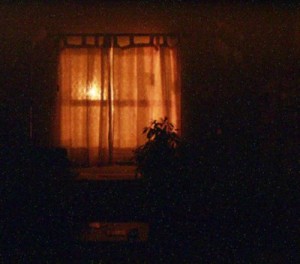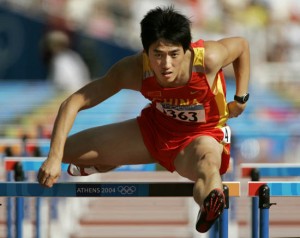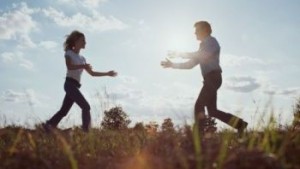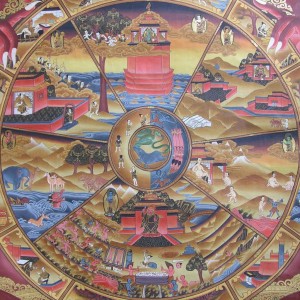The following is an excerpt from a teaching by Jetsunma Ahkon Lhamo called “Western Chöd”
Understanding what is in front of you is like, I’ve used this analogy before, it’s like walking through a dark room. Let’s say that the life span that you have can be symbolized by a room. It’s dark because you don’t know what it’s going to be like. So let’s say the room is perfectly pitch dark. All the shades are drawn. It’s dark outside. No moon. Lights are off. We’re talking dark. And it’s like that because no one can predict the future. We have no idea what our lives are going to be like. But you have to walk through that room.
So you have a choice there. You can either do what we’re used to doing which is, eyes closed, you don’t turn on the light. You just take it the way it is and, like a fool, just walk through the room. Now unfortunately in that room, there’s a sofa, there’s a couch, there’s a table, lots of tables, there’s stuff on the floor. It’s like any other room. It’s furnished. Just like your life. It’s furnished. So you’re going to walk through that room what, with the light off? With your eyes closed? Guess what’s going to happen. Try it in your room. Try it in your house. Just walk around a while with all the lights off and your eyes closed. You are going to hurt yourself. You’re going to fall down.
There’s another choice, and this is the choice that Buddhism offers to you, or that this kind of practice specifically offers you—examining the faults of cyclic existence and examining what is the more noble way.This kind of practice offers you another alternative and that is turning on the light. Having seen the faults of cyclic existence that’s like you’re walking through this room, yes, but you know where the couch is. You can walk around the couch. You know where the chair is. You can walk around the chair. You know where the table is. You can walk around the table. Something on the floor. You can step over that. So while it may not be our natural tendency to look at life in that way, it behooves us to have that kind of courage because ultimately it would be like walking through your life really seeing what it is, being able to avoid the obstacles, taking advantage of what is there to take advantage of, and not hurting yourself.
It isn’t like you’re sentencing yourself to several months of the worst practice you’ve ever experienced. In a way, for the first time, maybe for the only time, you’re being your own best friend. You’re really looking, really seeing, not copping out. And because of that you will be more competent to move through your life than you might have been otherwise. And not only that, you’ve given rise to the great Bodhicitta, the great compassion, and you have understood that while you are alive in this world, you cannot accept, you cannot bear the suffering of sentient beings. You see that it becomes somehow disgusting and unacceptable to you, that your two feet, that your self could be here in this world, and sentient beings are suffering. That’s why, in the practice, we give rise to renunciation, true renunciation. We totally give up the self for the purpose of benefitting sentient beings. Practice like that will produce that excellent result.
According to my teachers, this is a combination of preliminary practice called Ngöndro, which is where we see the faults of cyclic existence and give rise to the Bodhicitta, and it’s also the practice of Chöd. There’s no reason why any of you can’t begin to practice like that right now, immediately, tomorrow, today. That practice can be done deeply as I have just given instruction, but it can also be done in more casual way, as you’re walking around. Examine everything you see, and even if you are not a Buddhist, that’s fine with me. Even if you’re not planning on being a Buddhist but you’re interested in these words and you have some connection with them, great. You don’t have to be a Buddhist to practice in this way, because when I practiced in this way, I wasn’t. But it is the same ethics, the same morality and the same beauty that I have later come to find in my religion, Buddhism. So I offer this to you as a gift and I really hope that you take it with you wherever you go, and that, for my friend, it will bring you back safely, and that for all of you, you will have the most excellent result practicing in that way.
Copyright © Jetsunma Ahkon Norbu Lhamo All rights reserved









